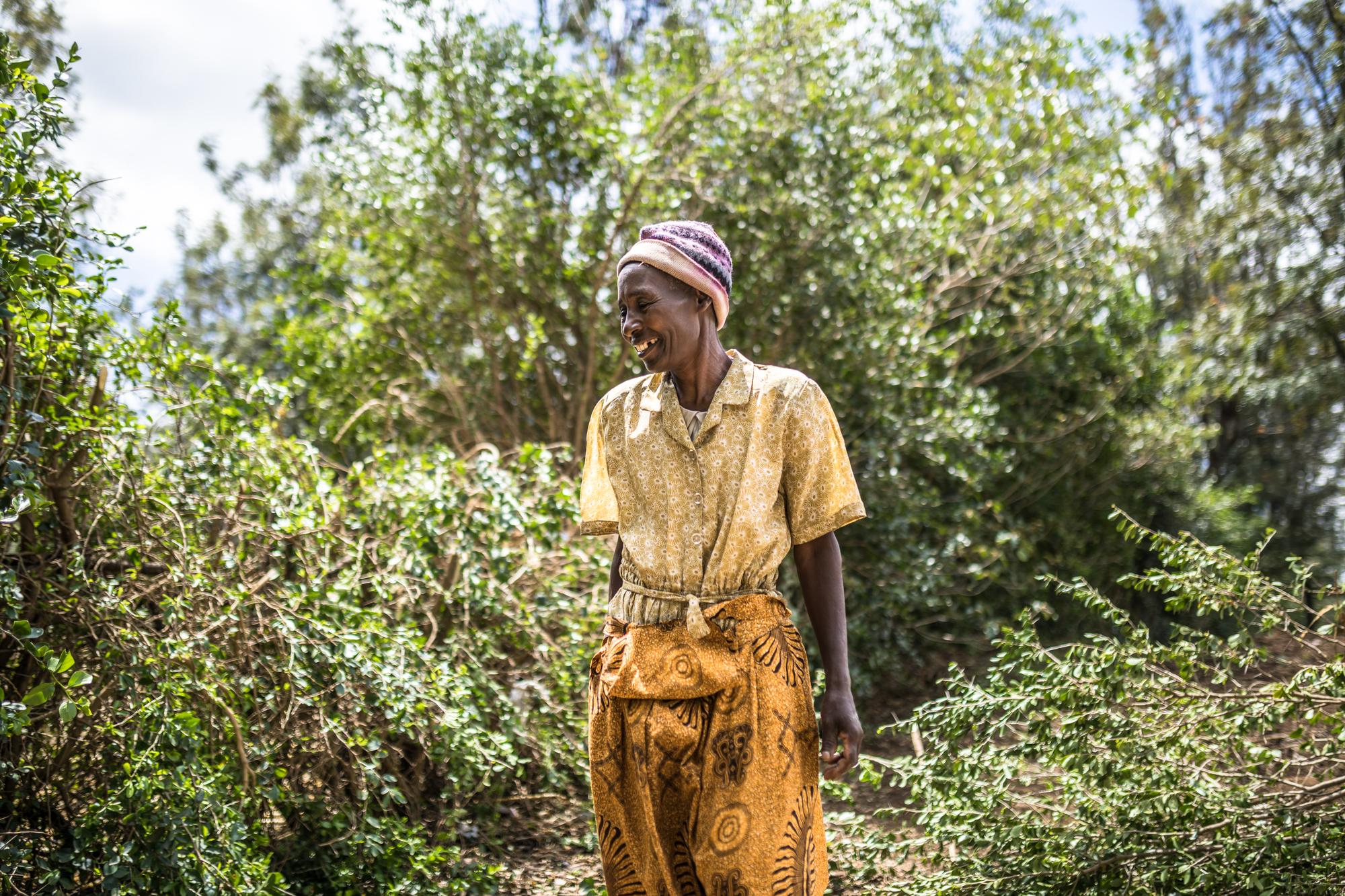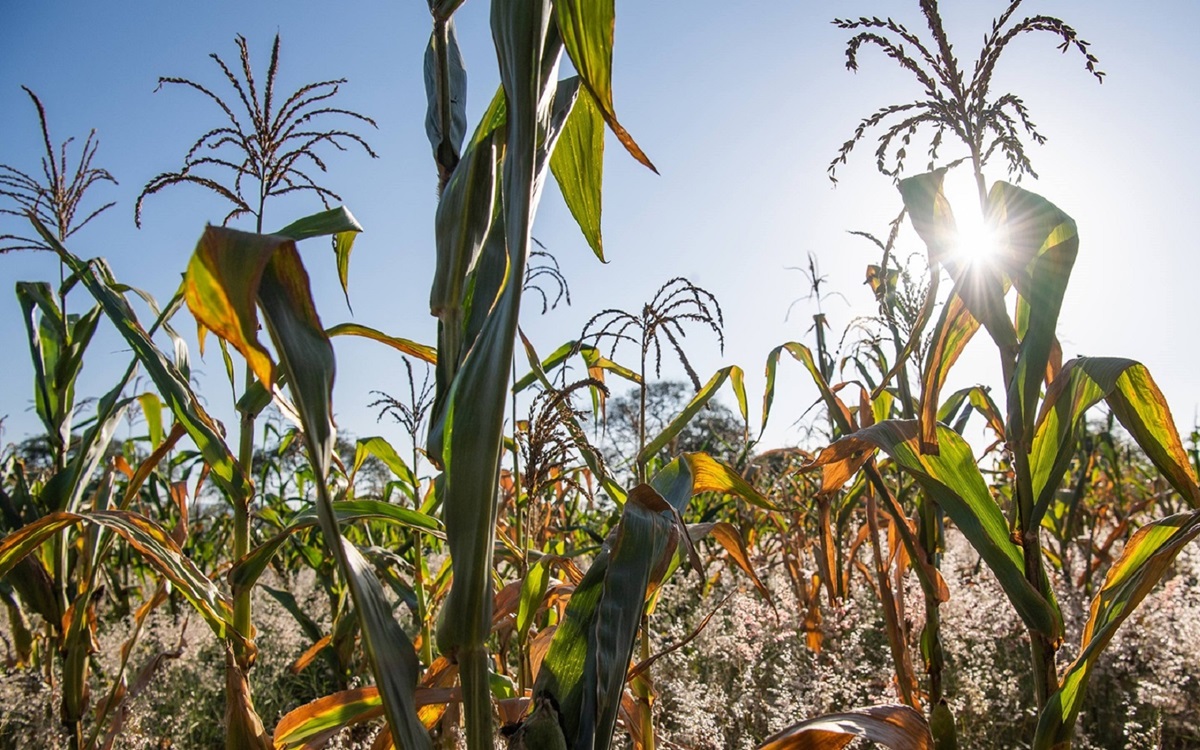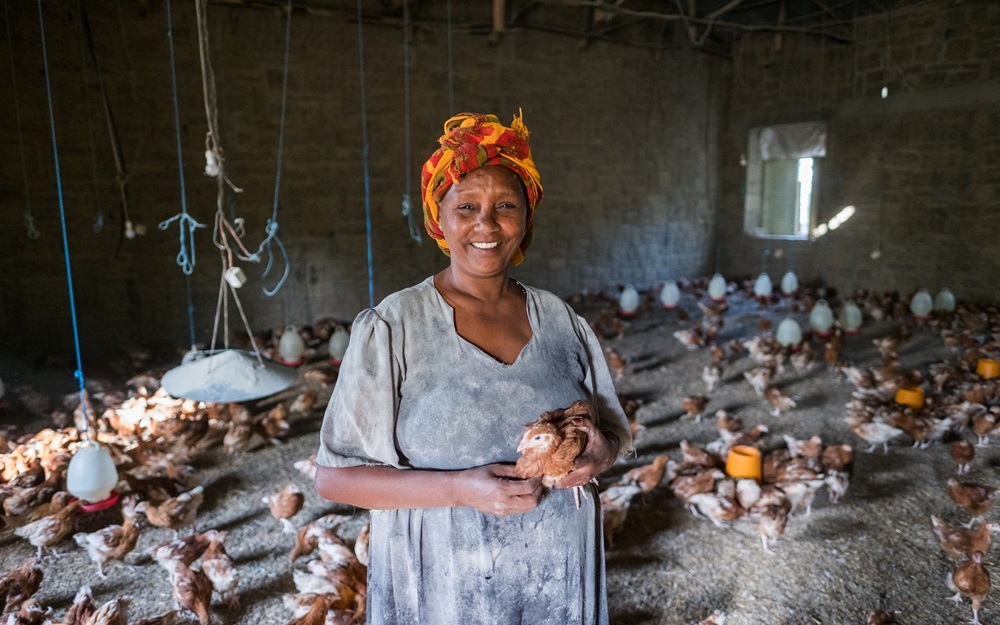Climate adaptation: Ensuring resilience in agriculture
Innovations are poised to help farmers adapt to devastating changes in weather patterns that threaten food security in the Global South.

Mary, a local farmer and poultry keeper, at her residence in Naivasha, Kenya.(Photo © Gates Archive/Brian Otieno)
Supporting innovations in agriculture to address challenges facing smallholder farmers
Across sub-Saharan Africa and South Asia, hundreds of millions of smallholder farmers are confronting the challenges of climate change. Many of them were already struggling, and now the surge of extreme weather the world has experienced over the past few years is damaging and even destroying their sole means of survival. Working to secure a better life for their families while providing their communities with access to affordable, nutritious food, they actively seek ways to adapt and succeed.
Already, innovations that boost resilience to new weather patterns are enabling farmers to improve food security for their communities. For example, in Ethiopia, a wheat rust early warning system has helped farmers avoid millions of dollars in losses to a climate-sensitive crop disease. African farmers in many countries are growing a host of new, naturally stress-tolerant varieties of maize, beans, sweet potatoes, rice, and cassava.
Nevertheless, the gap between the aspirations of farmers and the resources available to support them continues to widen. Climate models reveal that Africa and much of Southeast Asia, where small family farms are the main source of both food and jobs, face a devastating drop in food production that could provoke globe-shaking spikes in poverty, malnutrition, and economic inequality.
Subscribe to The Optimist to get weekly updates on the latest in global health, gender equality, education, and more.
By submitting your email to subscribe, you agree to the Bill & Melinda Gates Foundation's Privacy & Cookies Notice
Our commitment to smallholder farmers
We believe that the people who have contributed the least to global emissions should not be suffering the most. While sub-Saharan Africa accounts for only 4% of global greenhouse gas emissions, losses on African farms are almost twice the global average and climate financing is billions below their needs.
To help address this injustice, we have committed US$1.4 billion to help meet the climate adaptation needs of smallholder farmers. Our funding focuses on new applications of digital technologies, climate-smart innovations for smallholder crop and livestock farming, and support for women smallholder farmers to capitalize on their untapped potential. As of 2023, we are slightly ahead of schedule to meet our commitment.
One of the best investments we can make in fighting climate threats to food production is to support the global agricultural research partnership CGIAR. Every dollar invested in CGIAR’s work has consistently returned $10 in benefits for local farming communities.

What is climate adaptation?
While there’s no singular solution to climate change, we can still do our part to course correct. Adapting is key.
In collaboration with national research institutions and local partners, CGIAR has pioneered such innovations as digital soil maps used for land restoration, tech-enabled access to climate data for both men and women, and sustainable feeds that increase livestock productivity.
“Investing in Climate Change Adaptation and Agricultural Innovation Is Essential for Our Future”
Time for Action
World leaders are finally poised to take action on climate. But new funding streams for adaptation must be accompanied by financial reforms that will ensure that these investments are equitable and are accessible to the countries that need them most.
At the Gates Foundation, we work on agricultural development because research shows that growth in the agricultural sector is the most effective way to reduce poverty and hunger. We are optimistic that the world can overcome the perilous climate threats of today and put sustainable development back on track.
